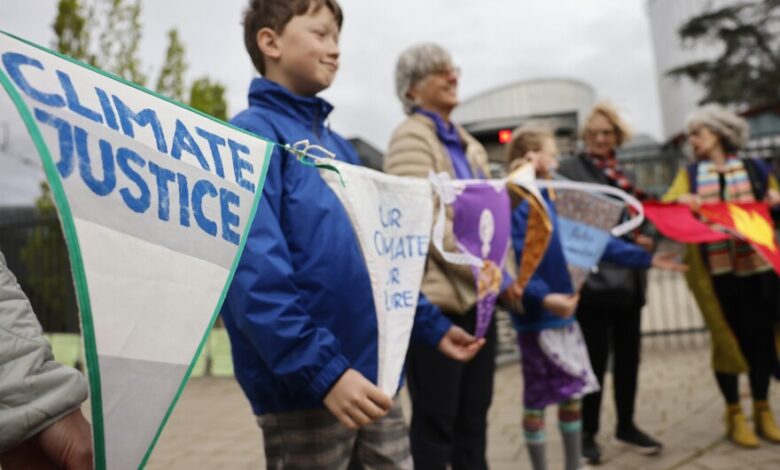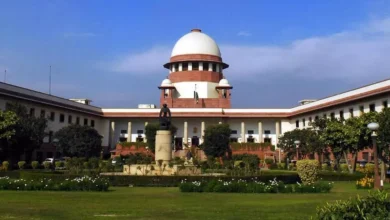Supreme Court ruling: Right to be free from climate change is a unique, basic human right
The verdict was related to a case concerning the preservation of the endangered Great Indian Bustard species. On March 21, an order was issued in open court to form an expert committee to investigate the issues faced by this bird species.

The Supreme Court has acknowledged the right to be protected from the detrimental impacts of climate change as a unique fundamental right under the Constitution. This right, although deeply felt, has not been explicitly expressed yet. It is intertwined with the right to a clean environment. As the devastation caused by climate change escalates annually, it becomes imperative to express this as a separate right. This right is affirmed by Articles 14 (right to equality) and 21 (right to life), as per the Supreme Court’s observation in a verdict issued on April 6.
The verdict was related to a case concerning the preservation of the endangered Great Indian Bustard species. On March 21, an order was issued in open court to form an expert committee to investigate the issues faced by this bird species. Their natural habitat and flight paths intersect with power transmission lines in Gujarat and Rajasthan.
The case was scheduled for further hearing in August 2024. However, unexpectedly, a verdict was uploaded over the weekend. The verdict primarily concentrates on climate change and its negative effects. The Chief Justice linked the right against climate change to Articles 21 and 14, stating that the rights to life and equality cannot be fully realized without a clean, stable environment.
What is Right To Health?
The right to health, which falls under Article 21’s right to life, is affected by factors such as air pollution, changes in vector-borne diseases, rising temperatures, droughts, food supply shortages due to crop failure, storms, and flooding. The inability of underserved communities to adapt to climate change or deal with its effects infringes on the right to life and the right to equality. If climate change and environmental degradation result in severe food and water shortages in a specific area, poorer communities will be more affected than wealthier ones.
The court also emphasized the link between climate change and various human rights, including the right to health, indigenous rights, gender equality, and the right to development. The court noted that the right to a healthy environment, free from the harmful effects of climate change, is a “fundamental human right”. Violations of the right to a healthy environment can have repercussions across numerous rights domains, including the right to life, personal integrity, health, water, and housing, as well as procedural rights such as information, expression, association, and participation.
Significance of solar power in combatting climate change
The court highlighted the crucial role of solar power in mitigating the harms of climate change. India urgently needs to transition to solar power due to three factors – one, the country is expected to account for 25% of global energy demand growth over the next two decades; two, rampant air pollution underscores the need for cleaner energy sources; three, declining groundwater levels and decreasing annual rainfall.
The court observed that the country has enormous solar energy potential and receives about 5,000 trillion kWh of solar energy per year. Solar photovoltaic power offers significant scalability in India, enabling effective utilization of solar energy. India’s goal to achieve 500 GW of non-fossil-based electricity generation capacity by 2030 aligns with its efforts to be net-zero by 2070.
In 2023-24, out of the total generation capacity of 9,943 MW added, 8,269 is from non-fossil fuel sources. According to the Renewable Energy Statistics 2023 released by the International Renewable Energy Agency (IRENA), India has the 4th largest installed capacity of renewable energy. India’s commitment to transitioning to non-fossil fuels is not just a strategic energy goal but a fundamental necessity for environmental preservation.
Investing in renewable energy not only addresses these urgent environmental concerns but also yields a plethora of socio-economic benefits. By shifting towards renewable energy sources, India enhances its energy security, reducing reliance on volatile fossil fuel markets and mitigating the risks associated with energy scarcity. Additionally, the adoption of renewable energy technologies helps in curbing air pollution, thereby improving public health and reducing healthcare costs.
Despite governmental policy and rules and regulations recognising the adverse effects of climate change and seeking to combat it, there is no single or umbrella legislation in India which relates to climate change and the attendant concerns. However, this does not mean that the people of India do not have a right against the adverse effects of climate change.



